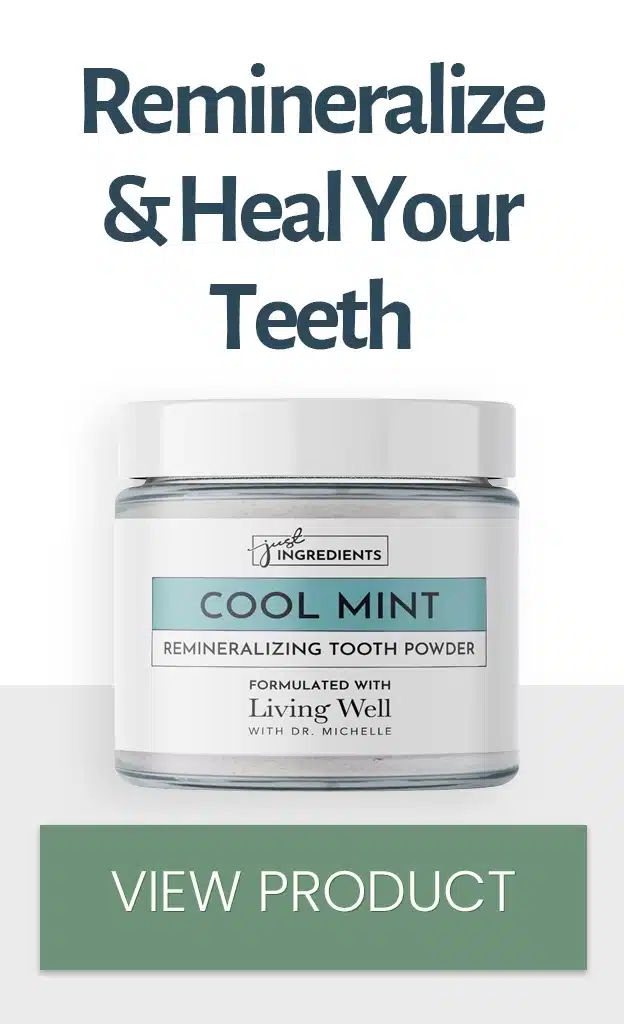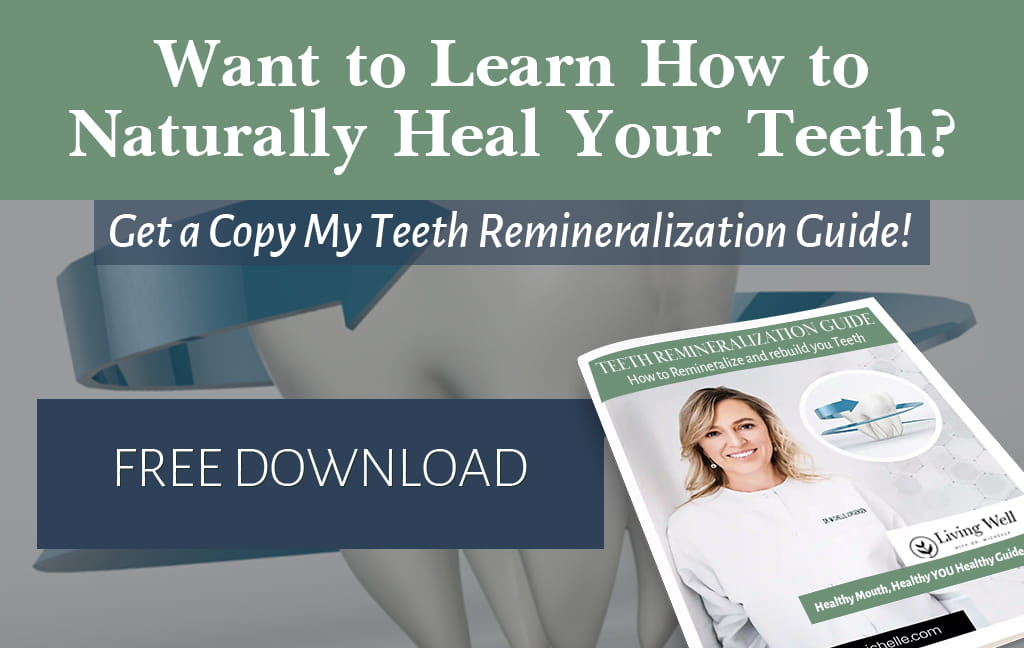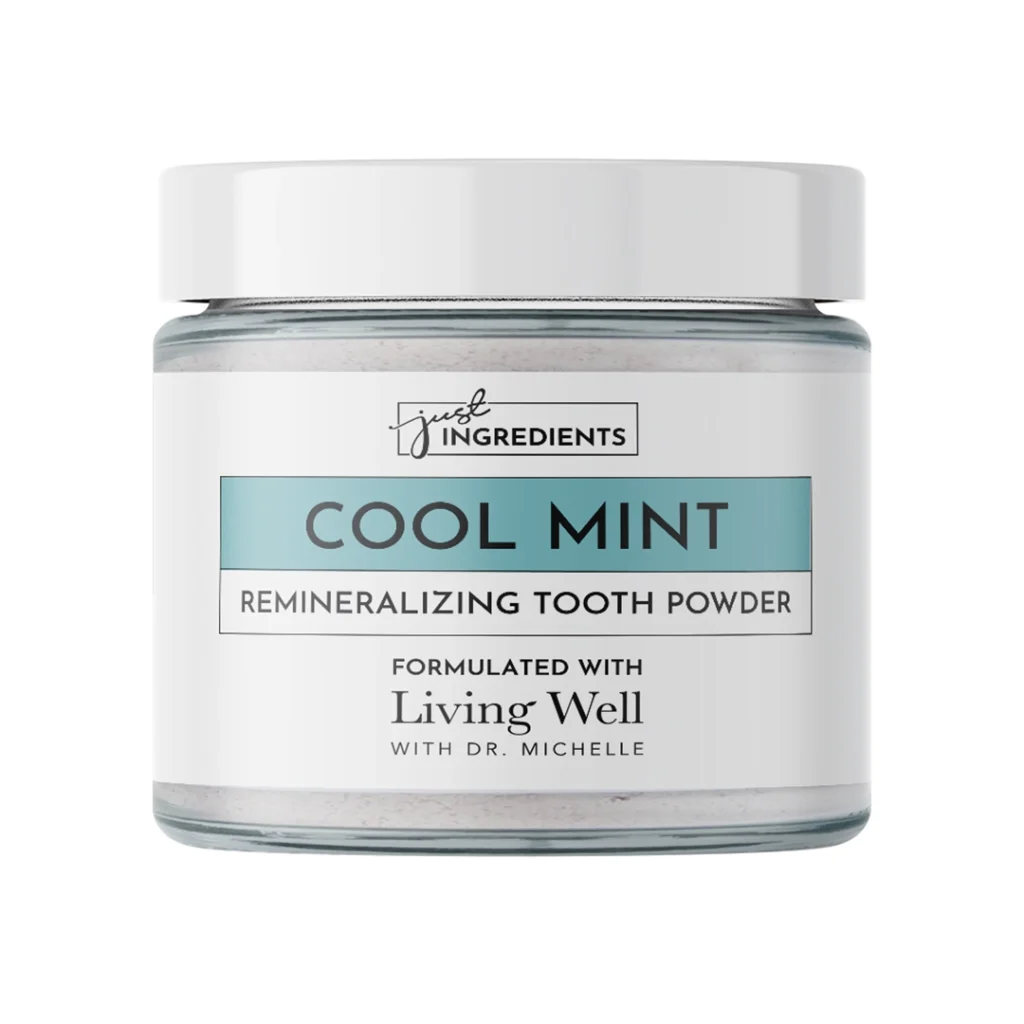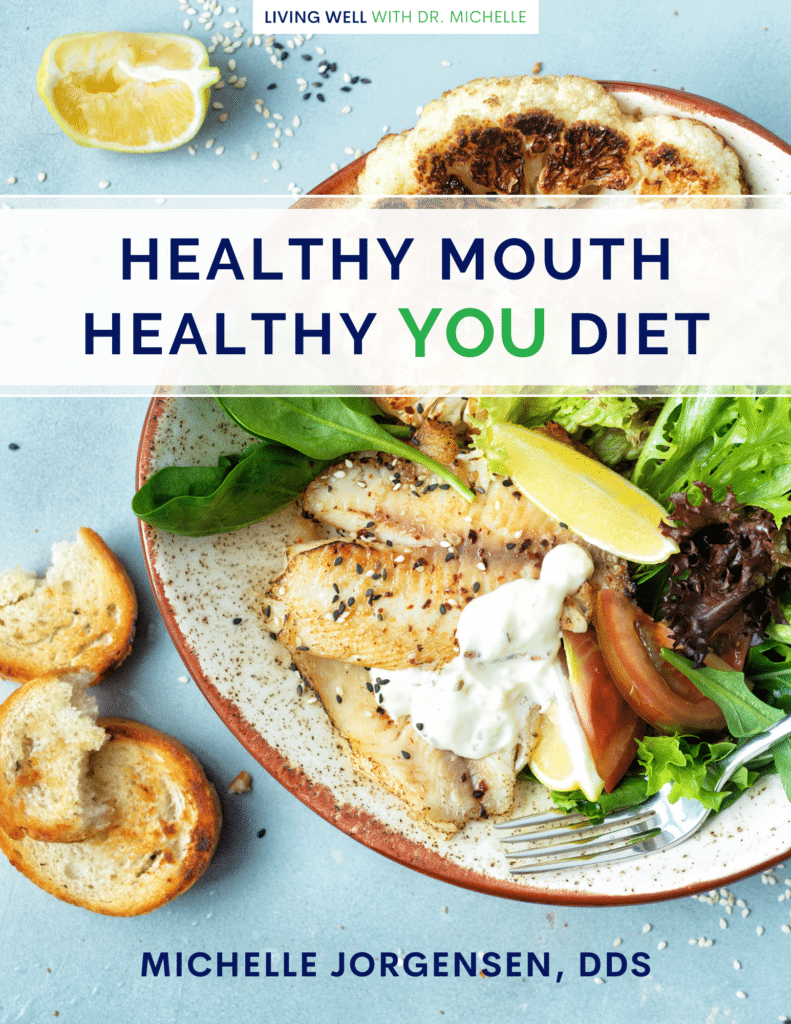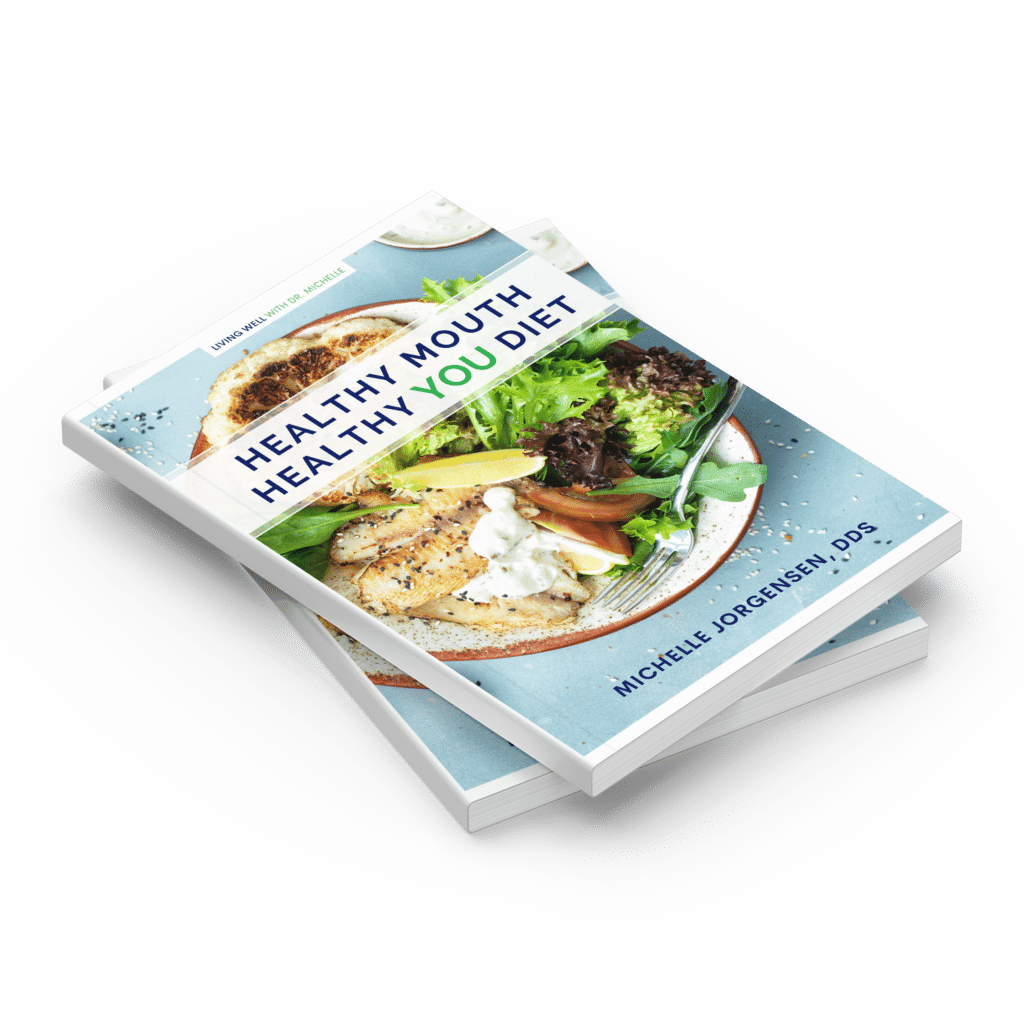
Dr. MIchelle Jorgensen
Is Fluoride Bad for You? What Your Dentist Might Not Be Telling You
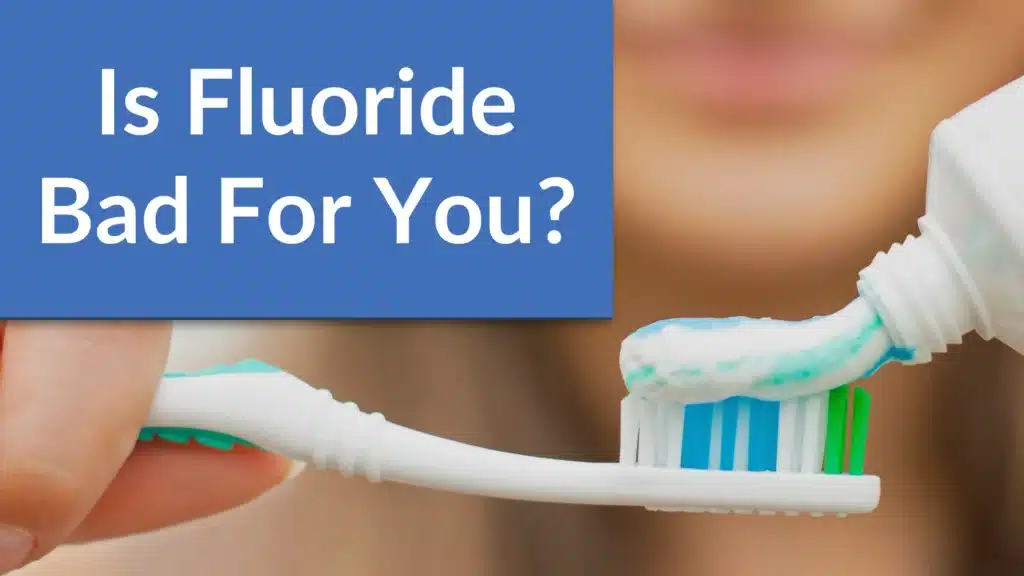
For decades, fluoride has been praised as the ultimate tool to prevent tooth decay—added to drinking water, toothpaste, mouth rinses, and even prescribed as fluoride supplements. In fact, the American Dental Association and CDC have called community water fluoridation one of the greatest public health achievements of the 20th century.
But if fluoride is such a miracle mineral… why are so many people still getting cavities?
As a holistic dentist, I’ve asked that question myself. And I’ve come to a conclusion that may surprise you:
Fluoride isn’t the only answer to healthy teeth—and in many cases, it may do more harm than good.
Let’s explore the history, science, and controversy around fluoride—and why there are safer, more effective alternatives you can use to protect your smile and your health.
What Is Fluoride and Why Is It Added to Our Water?
Fluoride is a natural mineral that occurs in soil, water, and some foods. In the early 1930s, a dentist named Frederick McKay observed that people in Colorado who drank fluoride-rich water had brown-stained teeth but fewer cavities.
This condition, now known as dental fluorosis, led scientists to believe that small doses of fluoride could reduce tooth decay without causing visible damage. That belief shaped decades of public health policy—including the widespread practice of adding fluoride to drinking water.
Today, fluoridated water, fluoridated toothpaste, and even fluoride treatments at the dentist are considered standard care. But the more we learn about fluoride exposure, the more questions we need to ask.
The Case for Fluoride: Does It Really Work?
Yes, fluoride can strengthen teeth—specifically by converting the outer layer of tooth enamel into a harder crystal called fluorapatite. This makes teeth more resistant to acid produced by bacteria and helps prevent cavities and dental caries.
Studies have shown that fluoride toothpaste and fluoridated mouth rinses can reduce dental plaque and cavity formation—especially when applied topically (directly to the teeth).
But here’s the catch: Cavities are not caused by a fluoride deficiency. They happen when your teeth lose minerals, especially calcium and phosphate, often due to poor diet, acid exposure, or imbalanced oral bacteria.
So instead of coating your teeth with fluoride, what if we replenished what they’re truly missing?
The Case Against Fluoride: Is It Safe?
While fluoride has benefits, its potential health risks are being taken more seriously than ever—especially when it’s ingested.
Some of the documented risks include:
Dental fluorosis: Overexposure to fluoride during childhood can lead to mild dental fluorosis, causing permanent white spots or streaks on developing teeth.
Skeletal fluorosis: High fluoride levels over time can harden but weaken bones, leading to bone fractures and skeletal fluorosis.
Neurotoxicity: A study published in JAMA Pediatrics found a link between maternal fluoride exposure and lower IQ scores in children.¹
National Toxicology Program (2024) concluded there is evidence of adverse effects on neurodevelopment and cognition with high fluoride exposure.²
Another study found similar results in children exposed to high levels of fluoride in drinking water, particularly in rural Chinese communities.³
Thyroid and hormone disruption: Fluoride mimics iodine and may interfere with thyroid hormone regulation, contributing to fatigue, sluggishness, and mood issues.
Uncontrolled intake: Fluoride in water supply, processed foods, and even medications makes it difficult to track how much fluoride you’re really getting.
Even the World Health Organization and National Research Council have raised concerns about excessive fluoride intake, particularly through fluoridated drinking water.
Is Fluoride Bad for You? My Conclusion as a Holistic Dentist
Here’s what I believe after decades of clinical experience and personal research:
Your teeth are made of hydroxyapatite—a crystal structure composed of calcium and phosphate, not fluoride.
Fluoride displaces calcium, forming fluorapatite. But that’s a temporary fix, not true healing.
You can get all the benefits of fluoride—and more—without the risks by giving your teeth the minerals they actually need.
So, is fluoride bad for you?
It can be. Especially when you’re consuming it in ways you can’t control.
That’s why I avoid fluoridated water, fluoride toothpaste, and fluoride supplements, and recommend my patients do the same. And here’s what I recommend instead…
A Better Way to Protect Your Teeth
1. Download My Free Remineralization Guide
Learn exactly which vitamins, minerals, and lifestyle habits support healthy, cavity-resistant teeth—from the inside out. This simple guide empowers you to strengthen your smile naturally.
2. Try Remineralizing Tooth Powder with Hydroxyapatite
Instead of fluoride, I recommend a safer, more effective ingredient: hydroxyapatite. This natural mineral:
Rebuilds enamel by integrating directly into your teeth
Prevents demineralization and stops early dental decay
Reduces tooth sensitivity
Is safe for children, pregnant women, and anyone concerned about fluoride intake
After years of searching for clean, effective products, I created my own line of Remineralizing Tooth Powders—formulated with hydroxyapatite, natural ingredients, and none of the harmful chemicals found in mainstream toothpaste.
Final Thoughts
Is fluoride bad for you? It depends on the dose, the source, and your body’s unique sensitivity. But if there’s a safer way to get the same benefits—without the risk—why not choose it?
Your health is too important to leave to outdated science.
Start nourishing your teeth the natural way—with minerals, not medications.
Have questions about your own fluoride exposure, thyroid health, or recurring cavities? We’re here to help.
References
Green R, Lanphear B, Hornung R, et al. Association Between Maternal Fluoride Exposure During Pregnancy and IQ Scores in Offspring in Canada. JAMA Pediatr. 2019;173(10):940–948. https://jamanetwork.com/journals/jamapediatrics/fullarticle/2757548
National Toxicology Program. Monograph on the State of the Science Concerning Fluoride Exposure and Neurodevelopment and Cognition. 2024. https://adanews.ada.org/ada-news/2024/august/national-toxicology-program-releases-fluoride-exposure-monograph
Xiang Q, Liang Y, Chen L, Wang C, Chen B, Chen X. Effect of fluoride in drinking water on children’s intelligence. Fluoride. 2003;36(2):84–94.

Dr. Michelle Jorgensen
Dr. Michelle Jorgensen is an author, speaker, teacher, biologic/holistic dentist, and health and wellness, provider.
Dr. Michelle Jorgensen is also a Board Certified Traditional Naturopath and has received certifications as a Therapeutic Nutritional Counselor, and a Certified Nutritional Autoimmune Specialist. She completed a Holistic Dental Mini-Residency and is pursuing ongoing training from experts around the world in health-related fields.
Dr. Jorgensen also teaches and coaches groups of dental professionals across the country through her Living Well Professionals training. They learn how to integrate dentistry with other health disciplines to provide an integrated, whole body approach to care.


